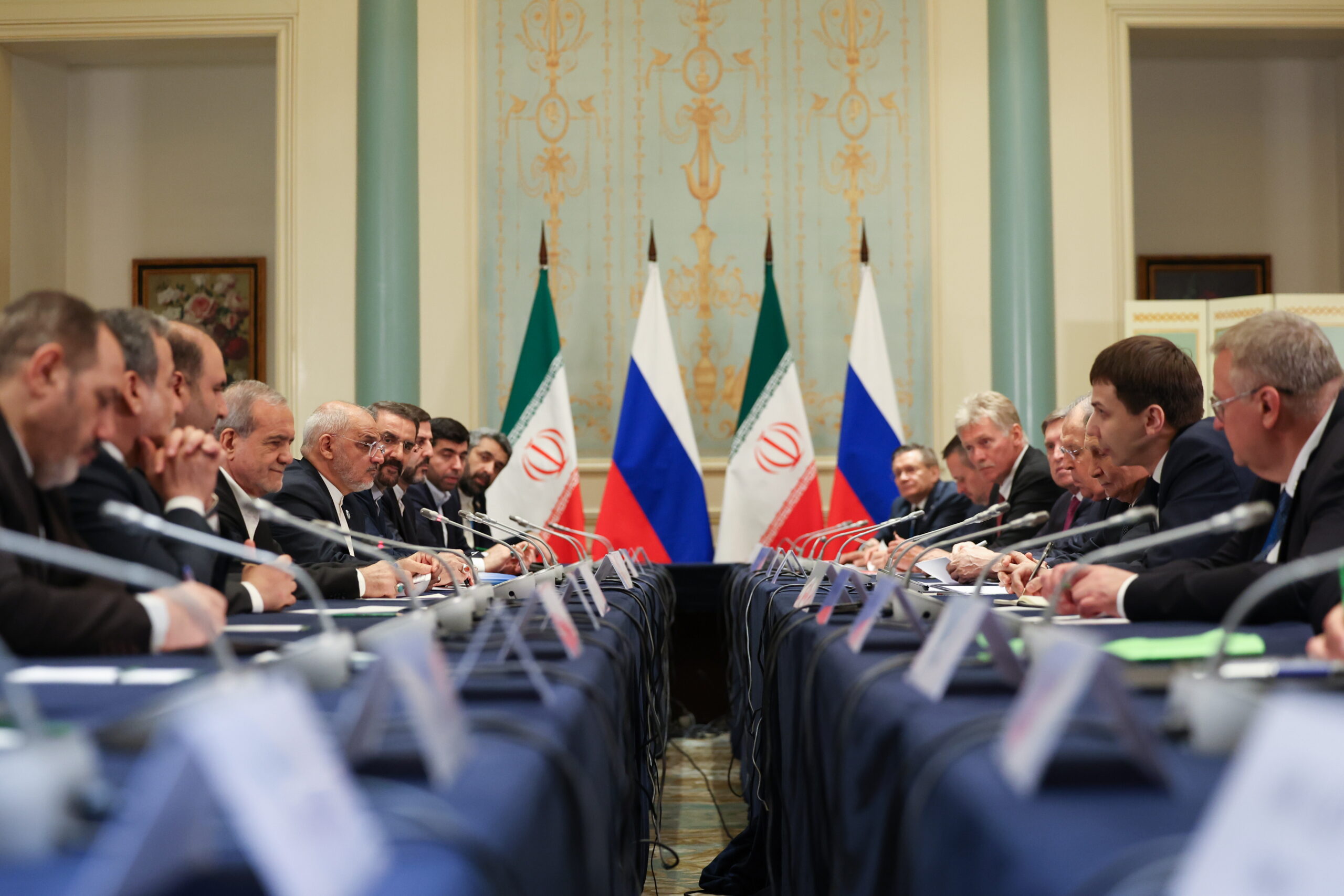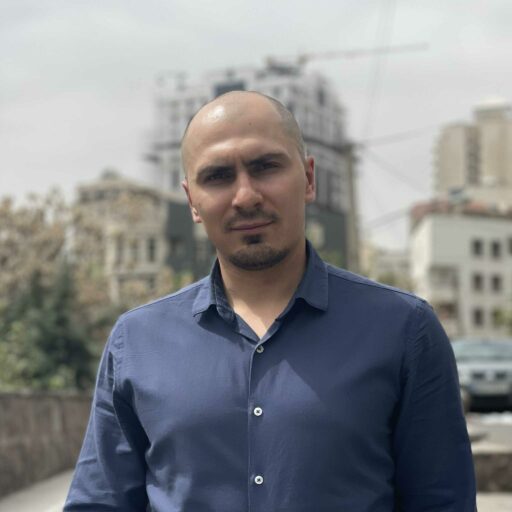In Tehran, dissatisfaction with the level of support from Moscow is growing, particularly after the 12-day war between Israel and Iran. The significance of the Islamic Republic to Russia is diminishing, leading Iran to fear a «political trade-off» not in its favor. However, Tehran’s international isolation limits its room for maneuver.
High-Level Scandal
In late August, a major story involving Moscow erupted in Iranian media. Mohammad Sadr, a member of Iran’s Expediency Discernment Council and former deputy foreign minister, accused Russia of assisting Israel in an interview.
Sadr raised two main grievances. First, he found it suspicious that during the recent «12-day war» and previous conflicts, Israel had precise intelligence on Iran’s air defense systems. «Based on my analysis and intelligence, I can say that it was the Russians who provided Israel with this information,» he claimed.
Second, Sadr noted that Russia has failed to deliver advanced weapons systems Iran requested, particularly Su-35 fighter jets. In early 2023, Iran claimed agreements existed for the delivery of two squadrons—24 aircraft. Later reports suggested up to 50 jets. However, Iran has only received a batch of Yak-130 training aircraft and, according to some sources, no more than four Su-35s. Sadr also highlighted that in 2019, Moscow sold S-400 air defense systems to Turkey but has refused to sell similar systems to Iran.
Sadr concluded that the so-called strategic pact between Iran and Russia, signed in January 2025, is «nothing more than a scam».
Sadr’s remarks stirred public sentiment, reigniting Iran’s habitual anti-Russian attitudes. However, the response in local media was mixed. The conservative newspaper Kayhan condemned Sadr, claiming his statements «harm Iran’s national security and foreign policy» and accusing him of «false and provocative» remarks. Meanwhile, reformist media criticized Kayhan for its «unconditional support for Russia.»
Authorities also responded. Iran’s Foreign Ministry stated that Sadr’s comments were his «personal opinion, not based on evidence» and did not reflect Tehran’s official stance. Tehran’s prosecutor launched a case against a member of the Expediency Council for «false and baseless» statements, though Sadr’s name was not explicitly mentioned.
Russia took notice as well. The Russian Foreign Ministry refuted Sadr’s accusations, calling them part of a «coordinated disinformation campaign by forces hostile to both Russia and Iran.» Russian diplomats accompanied their statement with a colorful «FAKE» label over a screenshot of Sadr’s image on the BBC Persian website.
Blame-Shifting
Using Russia as a convenient scapegoat is a familiar tactic for Iranian authorities. For instance, Mohammad Javad Zarif, a prominent Iranian politician and former foreign minister under President Hassan Rouhani, actively promoted cooperation with Moscow and reportedly built good relations with Sergei Lavrov. However, toward the end of Rouhani’s term, when the reformist camp faced sharp criticism, Zarif unexpectedly claimed that Russia had consistently hindered Tehran’s efforts to improve ties with the West.
Iranian military officials employed a similar tactic in January 2025, when General Behrouz Esbati blamed Moscow for the fall of Bashar al-Assad’s regime. He claimed Russia misled Iran by saying it was striking anti-government forces in Syria while actually bombing empty areas. This likely reflects the Iranian elite’s attempt to deflect blame for another failure—the loss of a key Middle Eastern ally Tehran had heavily invested in for years.
Assessing the credibility of these claims is challenging. Zarif’s admission seems plausible, while Sadr’s and Esbati’s statements raise more questions. However, the persistent pattern of such public behavior is equally significant. Russia’s image in Iran is so negative that even politicians use the Kremlin as a scapegoat for their failures when «political expediency» demands it.
This negative perception is rooted in history, which shapes Iran’s worldview. Moscow is remembered for annexing Azerbaijan in the early 19th century, the Cossack Brigade’s attack on Iran’s first parliament during the Constitutional Revolution, the British-Soviet occupation of Iran during World War II, and other historical grievances. Despite claims of partnership, Russia has not only failed to reverse this trend but has worsened it. For regime opponents, Moscow is a loyal ally of Khamenei; for supporters, it’s a partner that fails to help in times of need.
Polls conducted from abroad confirm this trend. Before February 2022, 42% of Iranians viewed Russia negatively, according to the Center for International and Security Studies at Maryland (CISSM). After the full-scale invasion of Ukraine, this figure rose to 57%.
Vladimir Putin may tout the tripling of Iranian students in Russia or Russian cultural festivals in Tehran and Isfahan, but the reality suggests that Iranian sentiment toward Moscow is best described as «couldn’t be worse».
Iran‘s Precarious Position
While Sadr’s statement is not unusual in the context of Iranian politics, shifts in Tehran-Moscow relations are evident. The 12-day war between Israel and Iran confirmed that the Kremlin has no intention of defending its partner against the Israeli-American threat.
From Moscow’s perspective, this stance is rational. Supplying two or even five squadrons of Su-35s wouldn’t save Iran from strikes—the military imbalance in Israel’s favor is too stark. Overcoming it would require years of consistent arms supplies to Iran, but this would strain Russia’s relations with Israel, Turkey, and Saudi Arabia, which oppose Iran’s military buildup. Thus, there’s no urgent need to arm Iran, especially as Russia prioritizes rearming its own military.
Direct military aid to Iran is out of the question. Russia clearly has no desire to engage in direct conflict with the U.S. and Israel for Iran’s sake.
Moreover, Iran’s importance to Russia is declining. Major projects are planned on Iranian soil, including a railway for the North-South corridor and a gas pipeline through Azerbaijan to the Persian Gulf. However, the risk of new Iran-Israel escalations has slowed these initiatives. Why invest billions of rubles in Iran if they could be destroyed in a war?
Economically, Iran is not a priority for Russia, even among Middle Eastern countries. Iran-Russia trade, despite numerous initiatives, hovers around $ 5 billion. By comparison, in 2024, trade with Turkey exceeded $ 50 billion, with the UAE nearly $ 10 billion, and with Egypt $ 9 billion.
Until recently, Iran’s key asset was its role as one of Russia’s few military partners, supplying drones. However, Iran’s peak importance to Russia’s military, particularly in the Ukraine war, was in 2022−2023. By 2025, Moscow had advanced its own drone production and nearly fully localized the assembly of Iranian drones. Western media reports suggest Russian engineers have significantly improved these drones, and now Tehran is interested in importing these upgraded models.
Unsurprisingly, Tehran increasingly fears a political trade-off against its interests. Iranian media frequently discuss scenarios where Trump and Putin strike a deal on Ukraine, with Iran as part of the bargain. It’s speculated that Moscow might allow the U.S. and Israel to strike Iran in exchange for concessions on Ukraine, further eroding Tehran’s trust in the Kremlin.
However, Iran’s foreign policy options are limited. Relations with the West, including Europe, are deteriorating. China remains a key partner, but its trade with Turkey and Saudi Arabia dwarfs its dealings with Iran. Beijing is also hesitant to supply Tehran with advanced weapons. Regional countries approach Iran pragmatically—they trade but compete openly on many issues. Syria is a case in point: Iran’s ally was displaced by Turkey’s proxy forces, and after Assad’s fall, Saudi Arabia and Qatar are vying to replace Iran’s financial influence.
Despite its grievances, Tehran will likely have to maintain and develop ties with Moscow in the near future. One can debate how and why Iran ended up in this situation, but the fact remains: with so few foreign policy partners, Iran cannot afford to break with Russia.










